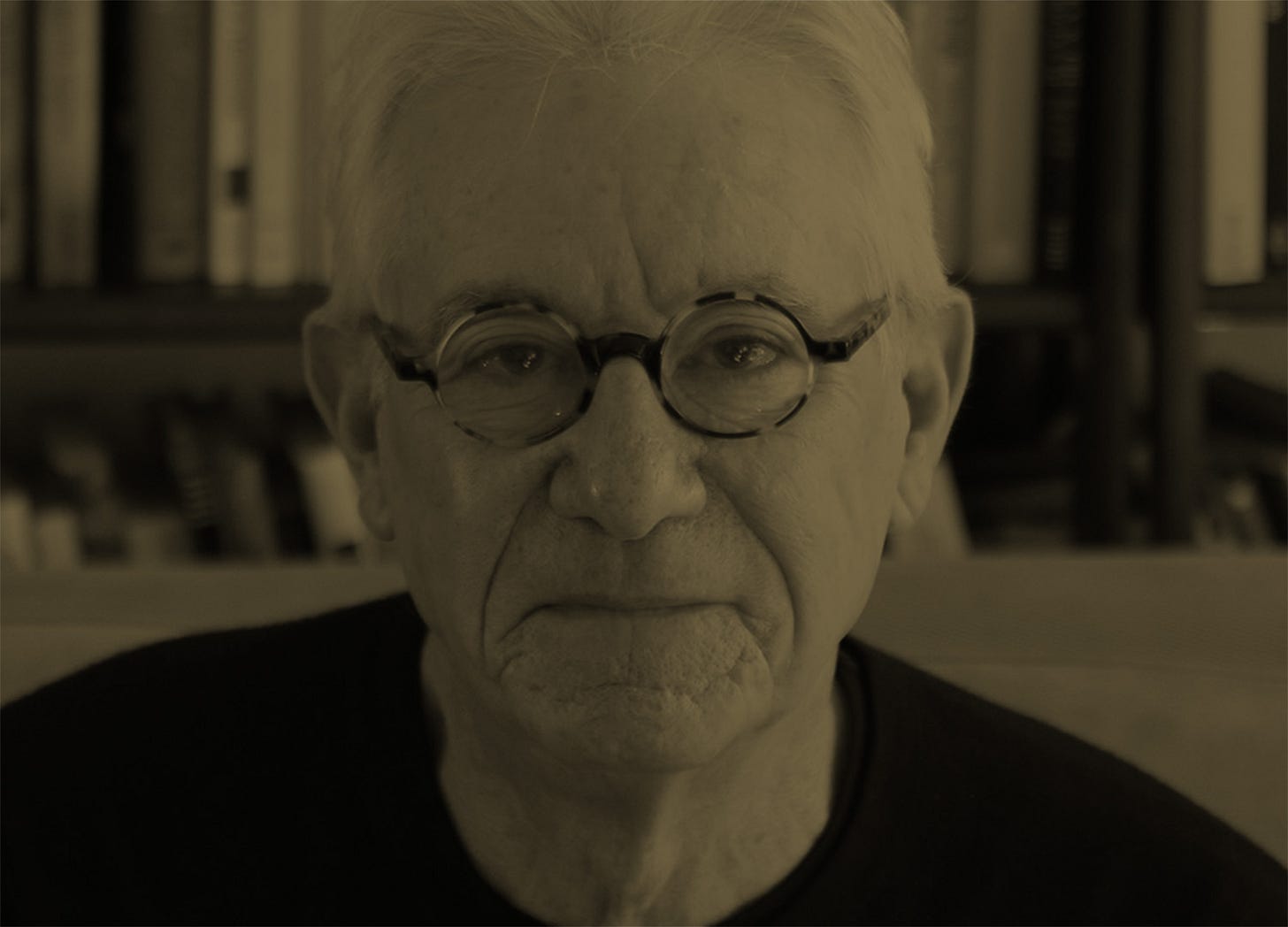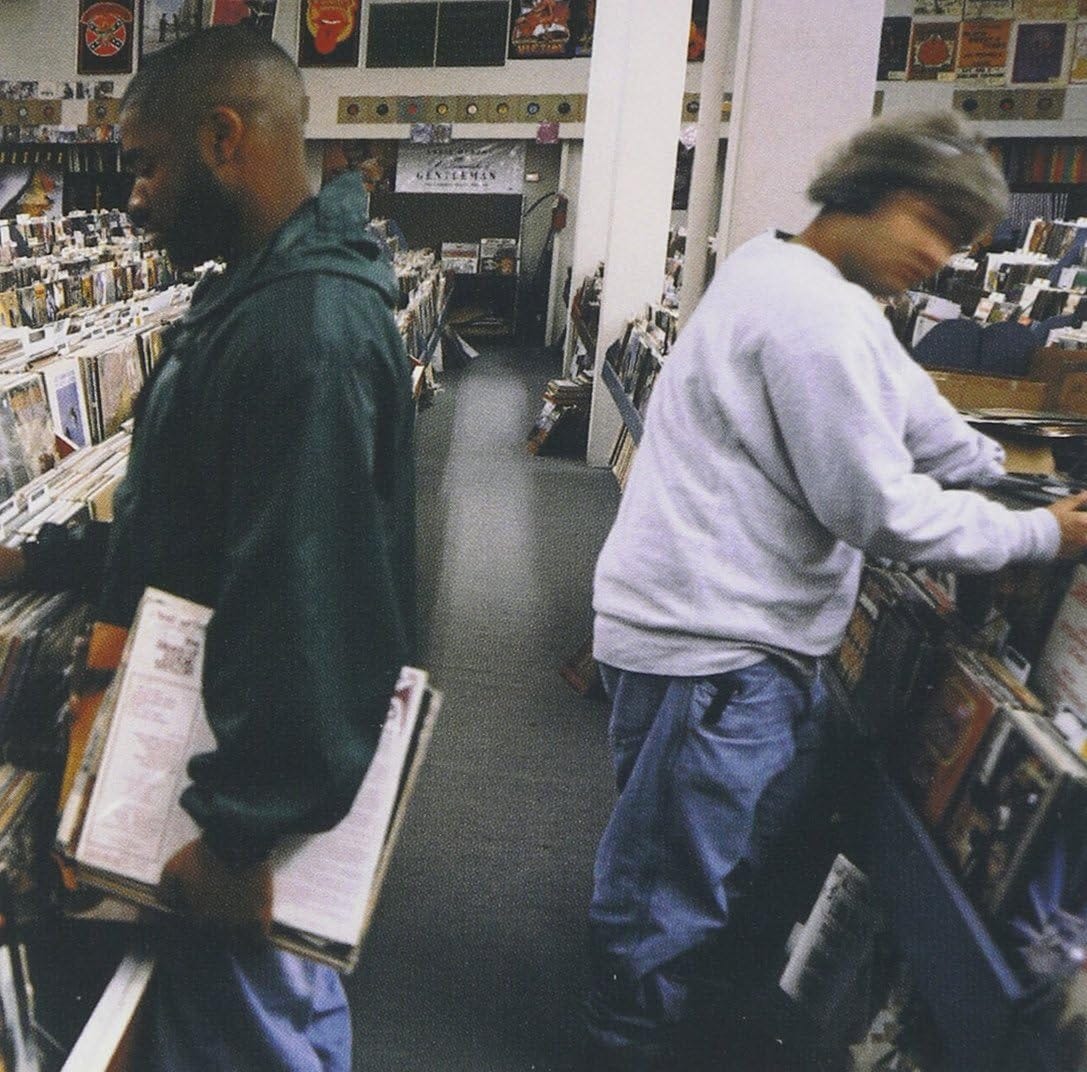The 'Days Between Stations' columns, Interview magazine 1992-2008: The sound of being watched
April 1997
He’s going to get it all straightened out, Tom Neal is—that body he had to leave on the road, it wasn’t his fault, really. This is the guy in Detour, the grade-Z noir Edgar G. Ulmer made in 1945 on a budget of some pills and Ann Savage’s ass. Neal and Savage are in a hotel two-room; drunk, she threatens to call the cops on him. She runs into the bedroom with the telephone and locks the door, passing out on the bed with the cord draped over her shoulders and the phone in her hand. In a panic, Neal pulls the cord under the door—to break it, he says in his hangdog voice-over. When he finally breaks into the room he finds Savage strangled to death. Oh God. Oh Jesus God.
This incident—or a thousand half-remembered TV or movie incidents like it—could lie behind the music on Endtroducing (MoWax/FFRR), the dreamy, all-samples debut album by DJ Shadow, a.k.a. Josh Davis, of Davis, Calif. You could say the record has been made—constructed, reconstructed, composed, decomposed—out of found objects, out of tiny, filtered, smeared, and looped fragments culled from the hundreds upon thousands of forgotten or never-known forty-fives, twelve-inch discs, and LPs pictured in bins and shelves and piles all over the Endtroducing graphics.
There’s an argument, though, that found objects are really lost objects. If you think about it that way, if you make that small ontological shift, then you might begin to think of these objects—like pieces of a beat, a drum sample, a long looped and layered note from a piano riff built up into a theme, the theme then extending and deepening until it seems to hint at an argument about the meaning of life—as aesthetic orphans, not prizes in a scavenger hunt. As such, each fragment would, by definition, have a history behind it: a story that likely could not be found, even if you looked for it, or if the orphan sound searched through some Borgesian House of Records for its true parents, which is to say its once-whole body. Like the orphan sound, you, the listener, will never find this hidden back story of the greater sounds that are sweeping you up; only the DJ knows these stories, if he hasn’t lost his notes somewhere in the piles of records that have made his apartment a joke.
Out of this sense of a missing story comes the miasma of drift and doom that is DJ Shadow’s music. At the end of “Stem/Long Stem“—the impenetrable, gorgeously opaque piece that runs for more than nine minutes and seems to demand to play on for days, to demand that you set repeat and play it even when you leave the house—there’s a distant echo of Miles Davis’s Sketches of Spain. The quiet in that music—the feeling of having finally understood something essential about life, that it cannot be rushed, a feeling inseparable from the quality of light in Seville, maybe—is, for an instant, all you hear. The theme in “Stem/Long Stem”—like a much-slowed-down, infinitely self-contemplating version of the string part that ends Prince’s “When Doves Cry”—drops away. And then, of course, like Tom Neal going back into the bedroom, it returns, leaving you fooled by your own peace of mind.
The theme here is the sound of being watched. It is almost skin-crawlingly beautiful in its inexorable repetition, stronger when absorbing assaults from a drum machine or a crying singer than on its own. Paranoia is the content, the subject, the story. “What’s to stop them?” a square, white, lower-middle-class American from somewhere in the 1950s asks just before the theme begins to ornament itself, to dress up for a night out. “I mean, what’s to stop them?”
I’d have called this record A False Sense of Security. At times it’s simply playful. In the three sci-fi “Transmission” interludes, it’s a Buck Rogers comic strip. But even here—which is to say, all across Endtroducing—the conceit takes on flesh, and the flesh begins to sweat. In the wash of outer-space static that accompanies the “Transmission” messages, the cartoon voice begins to say things that are not cartoonish, or that no longer sound like jokes: “This is not a dream… not a dream… You are seeing what is actually occurring… We are transmitting from Fear 1-9… 1-9-9… 1-9-9-9.” It’s a warning from another world that the end of the millennium will be the end of us.
This is an album of pleasures. It will carry you away. It’s also the creepiest, deadliest piece of work since Ian Curtis hung himself and Joy Division turned into New Order. Josh Davis has captured the glamour and surprise of New Order’s “Bizarre Love Triangle” without abandoning, as that band did, the peculiar shudder of music made by a guy looking back over his shoulder. As with Tom Neal, DJ Shadow’s music begins in panic and it ends there.
Originally published in Interview Magazine, April 1997



